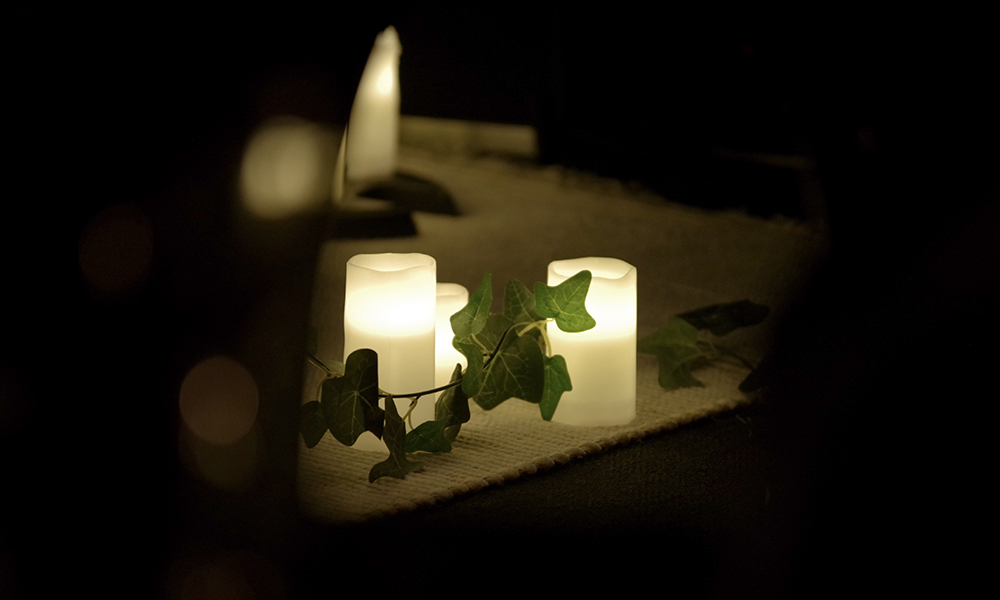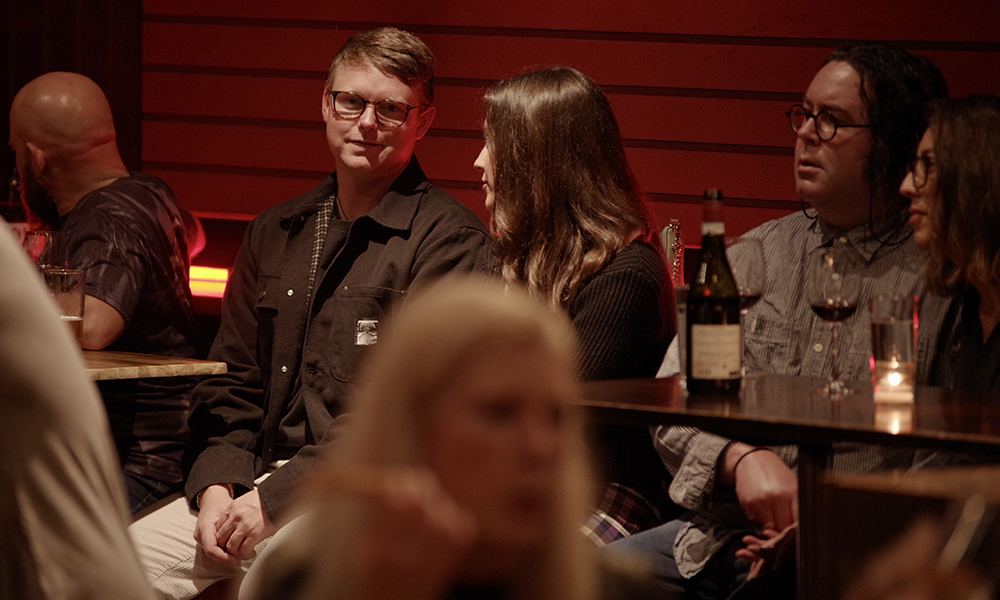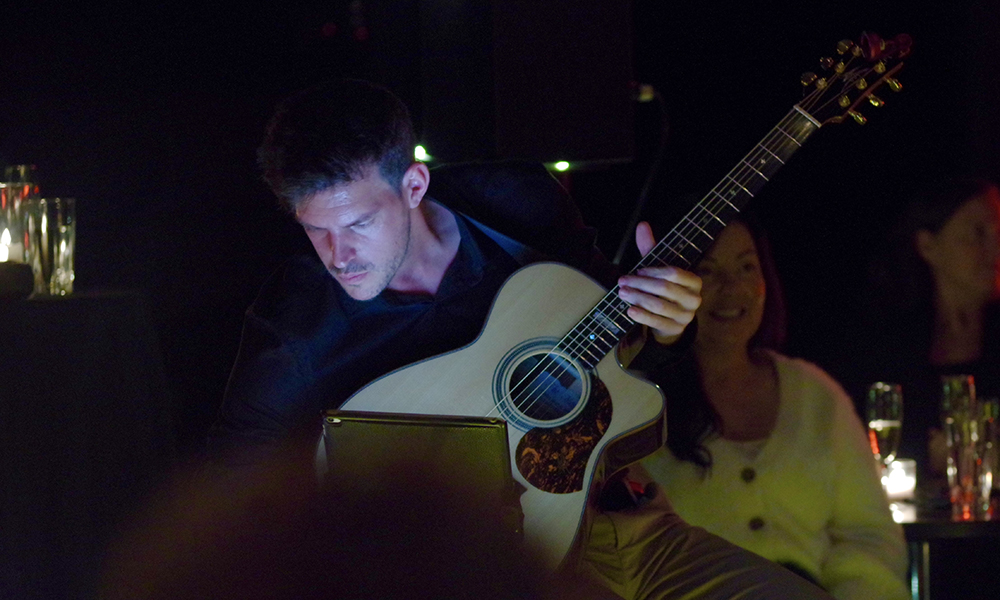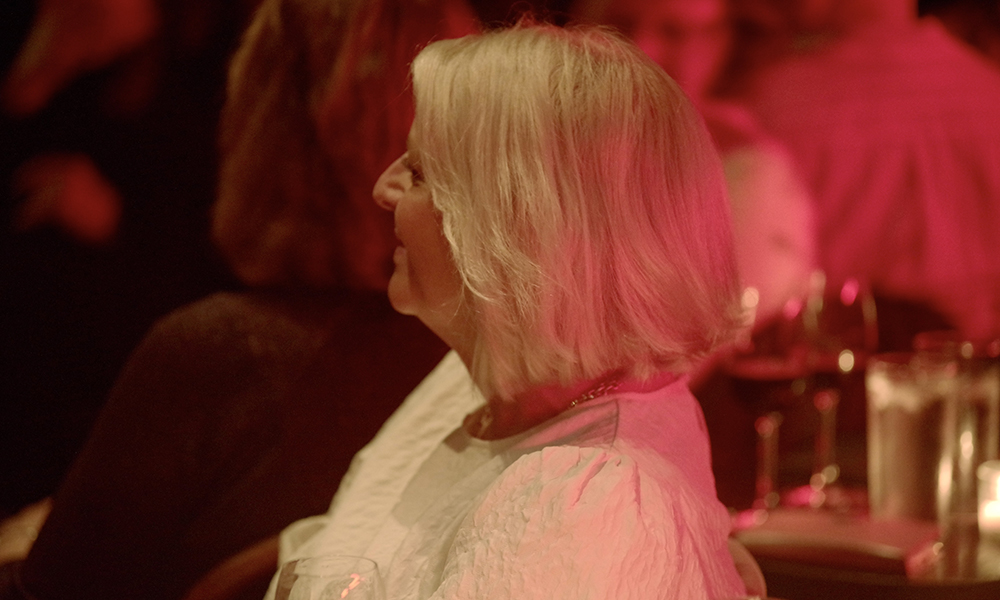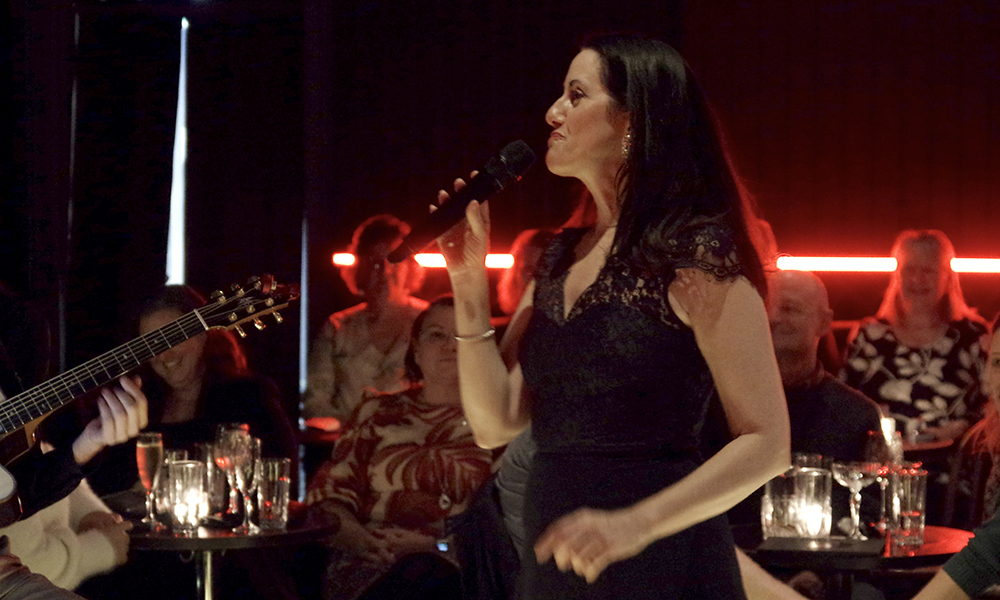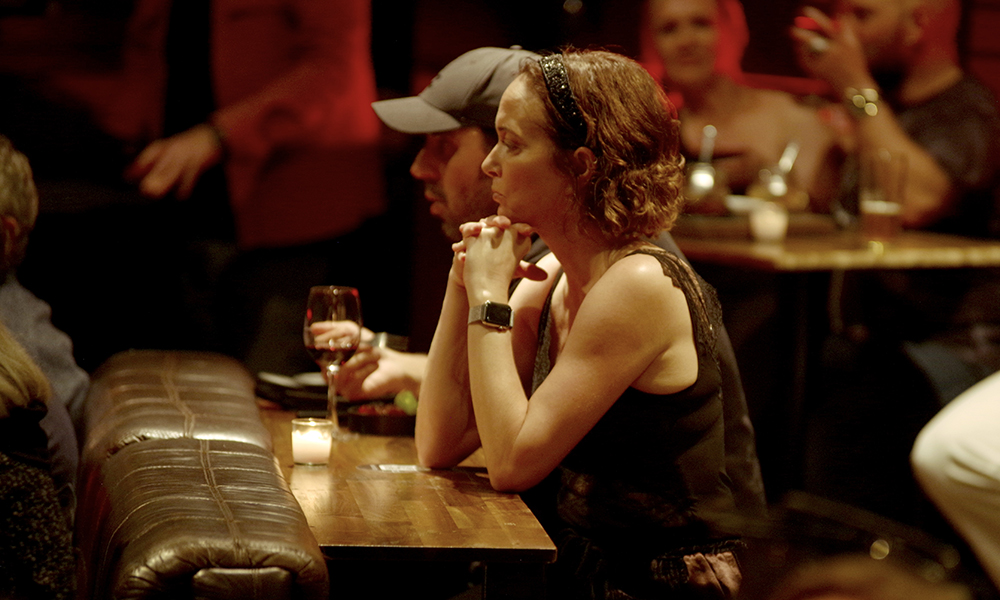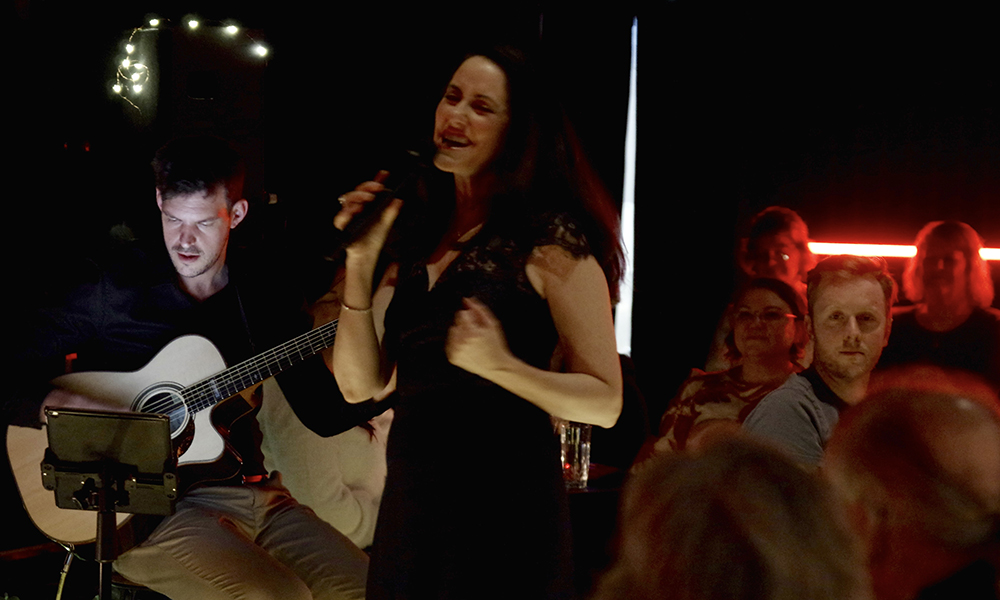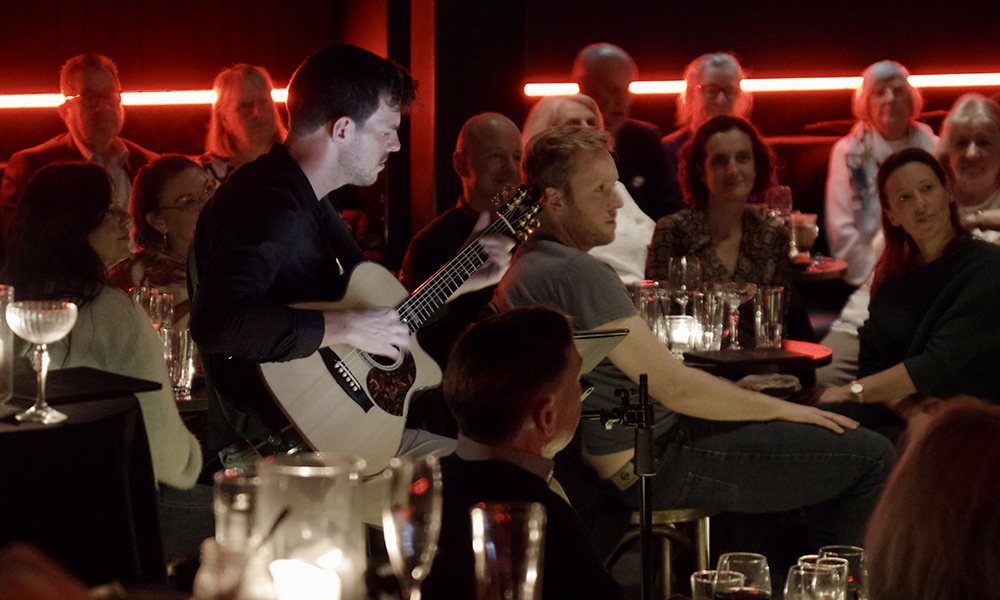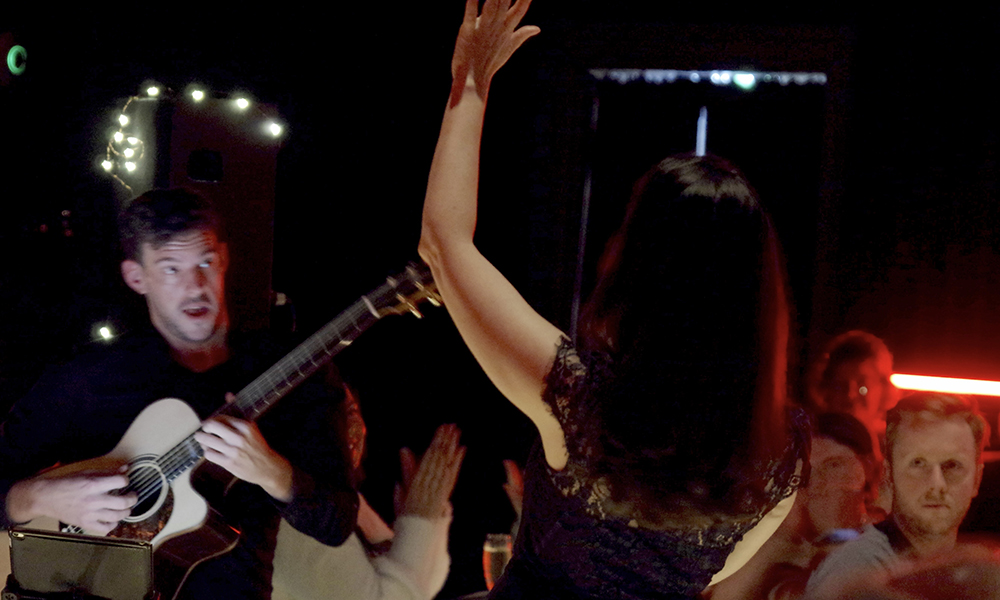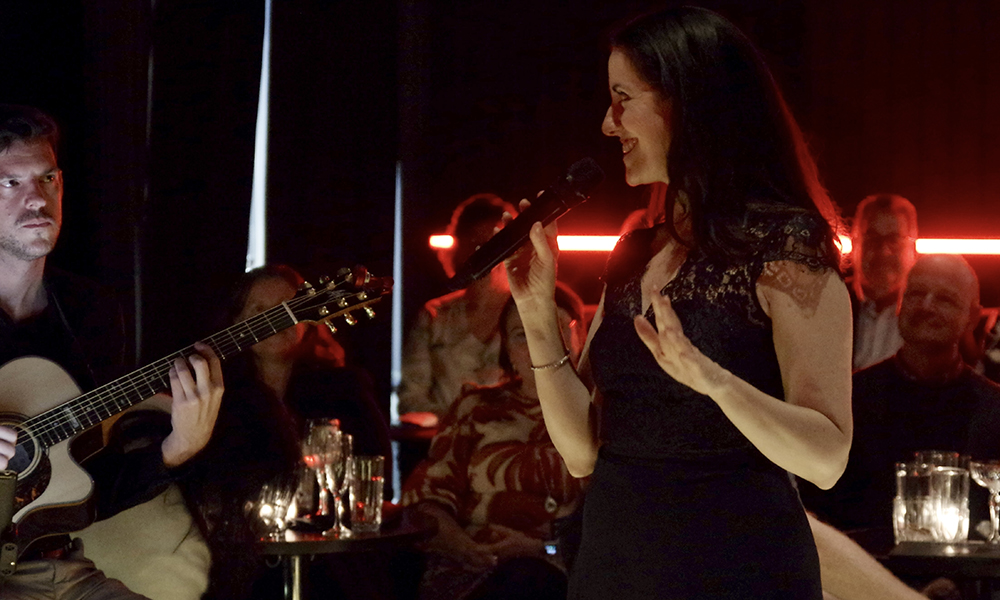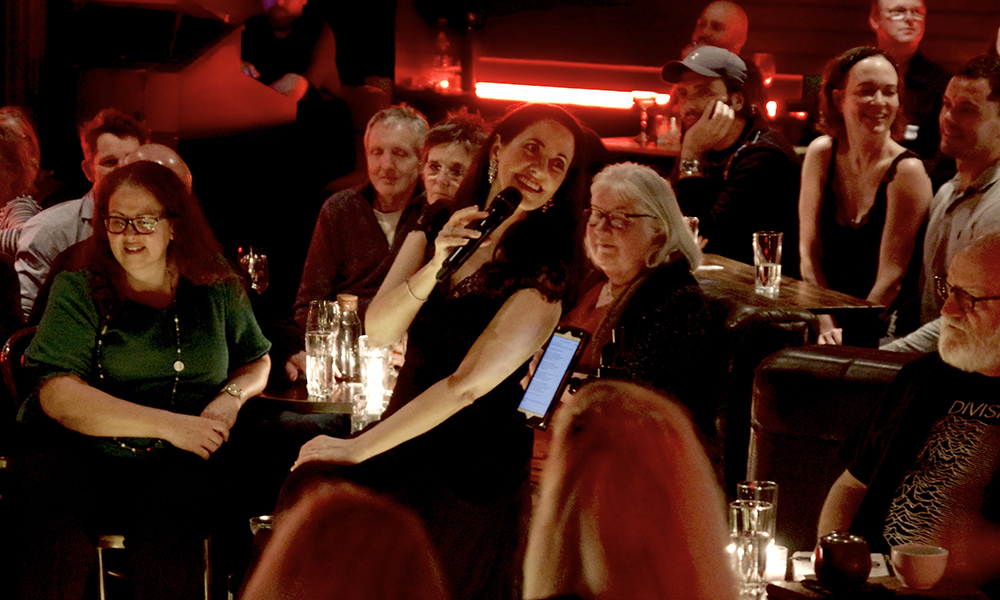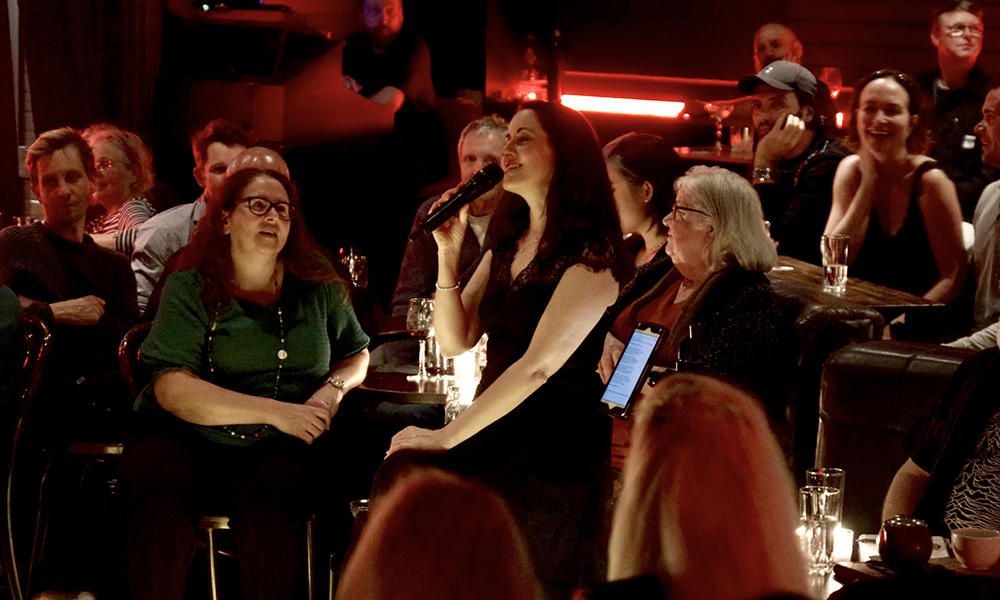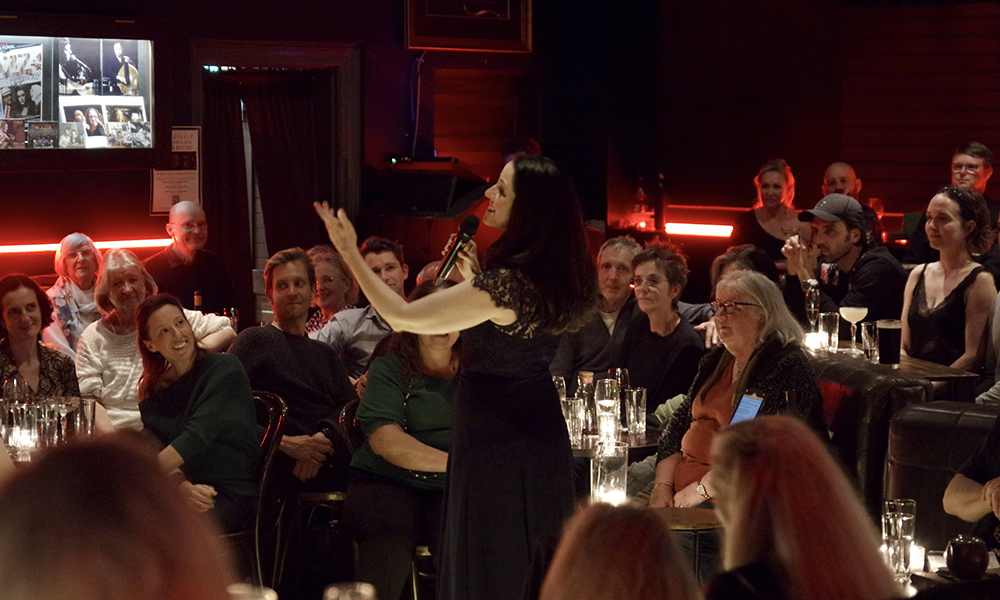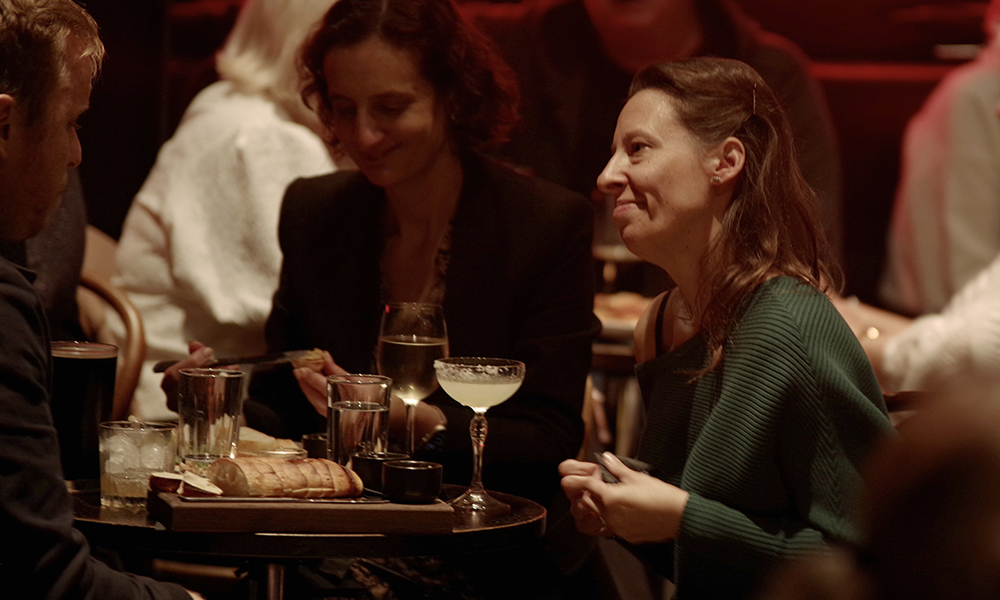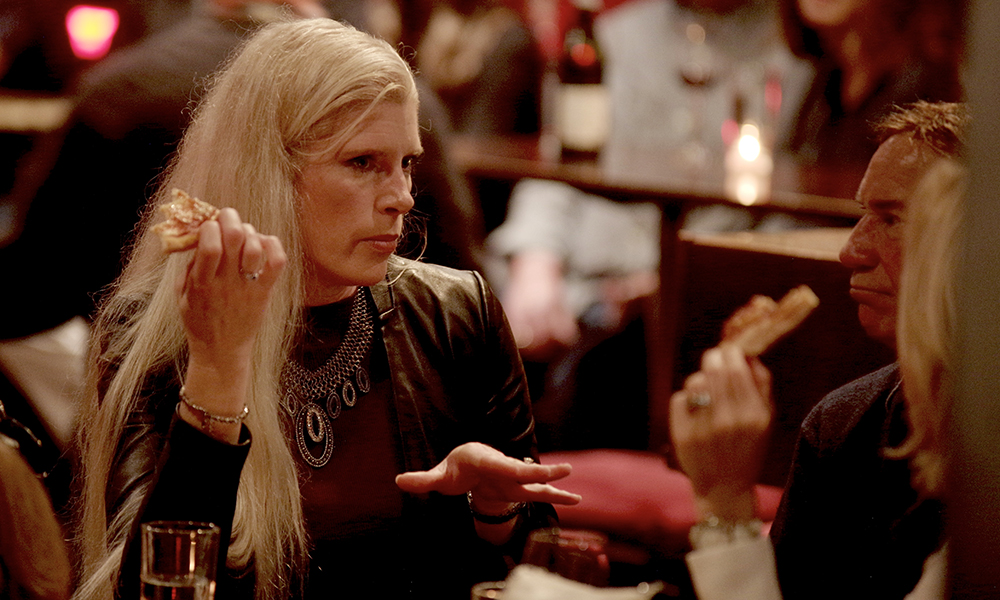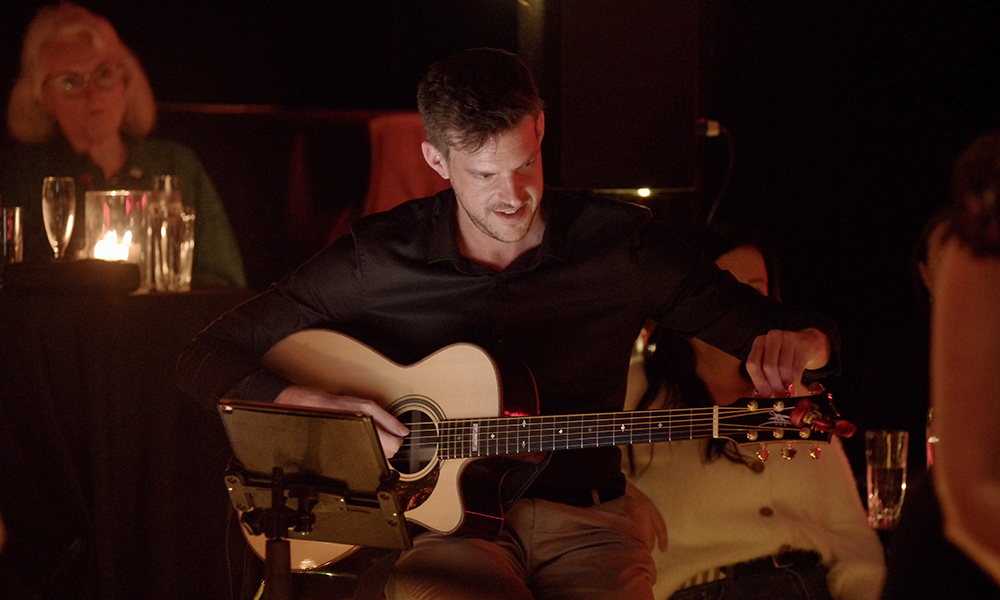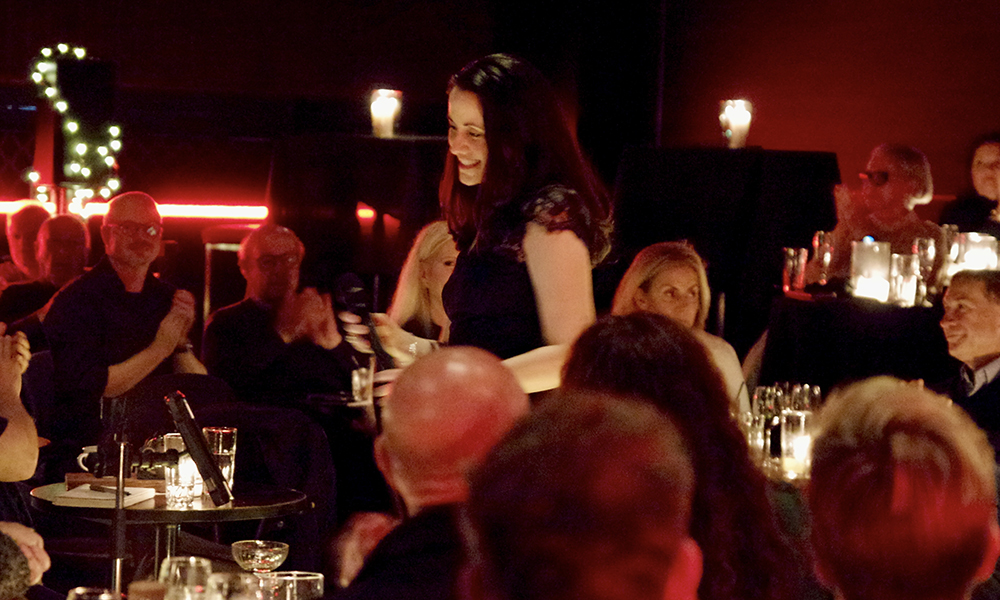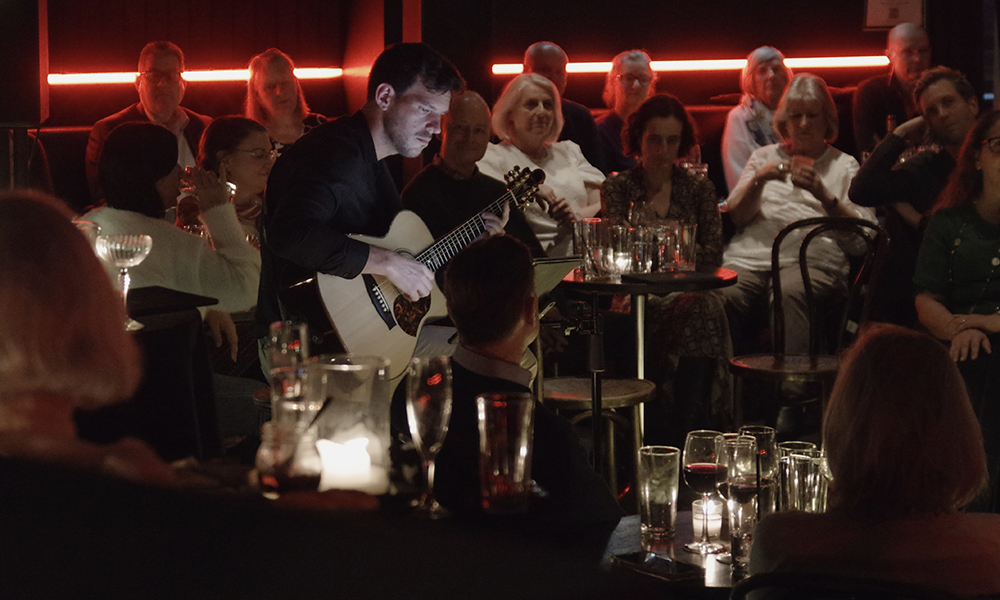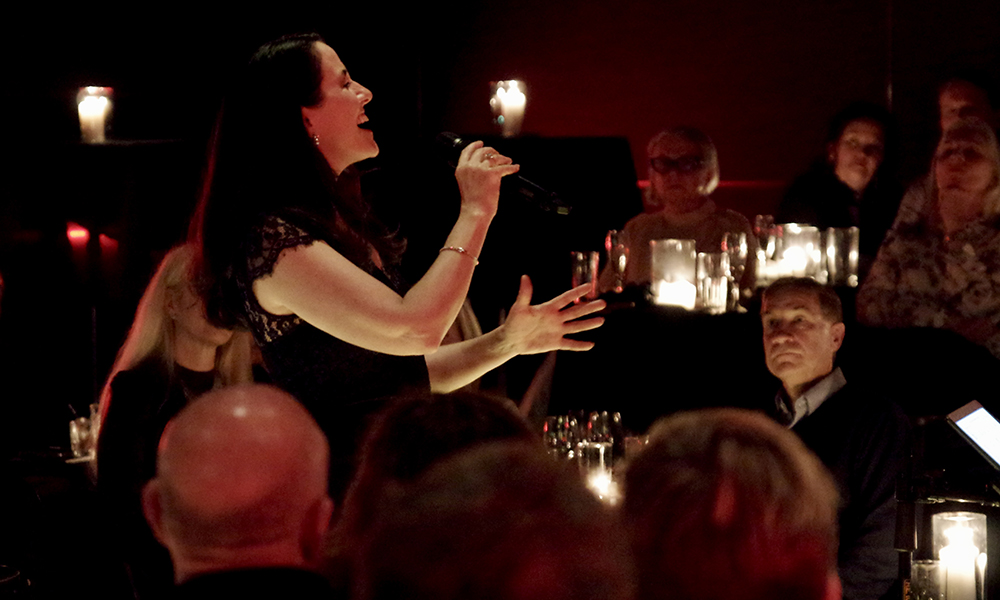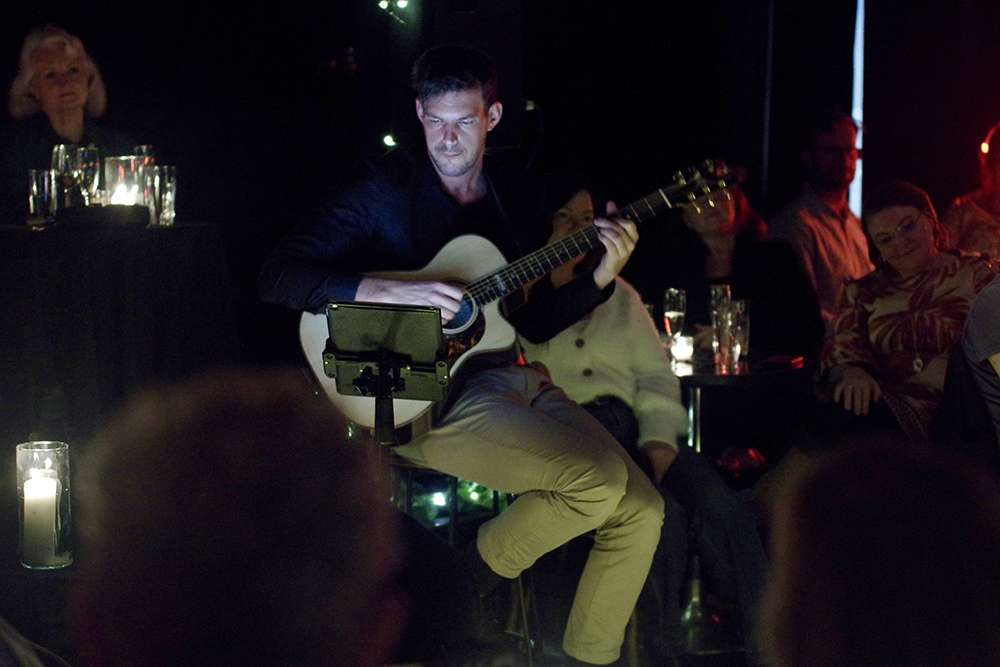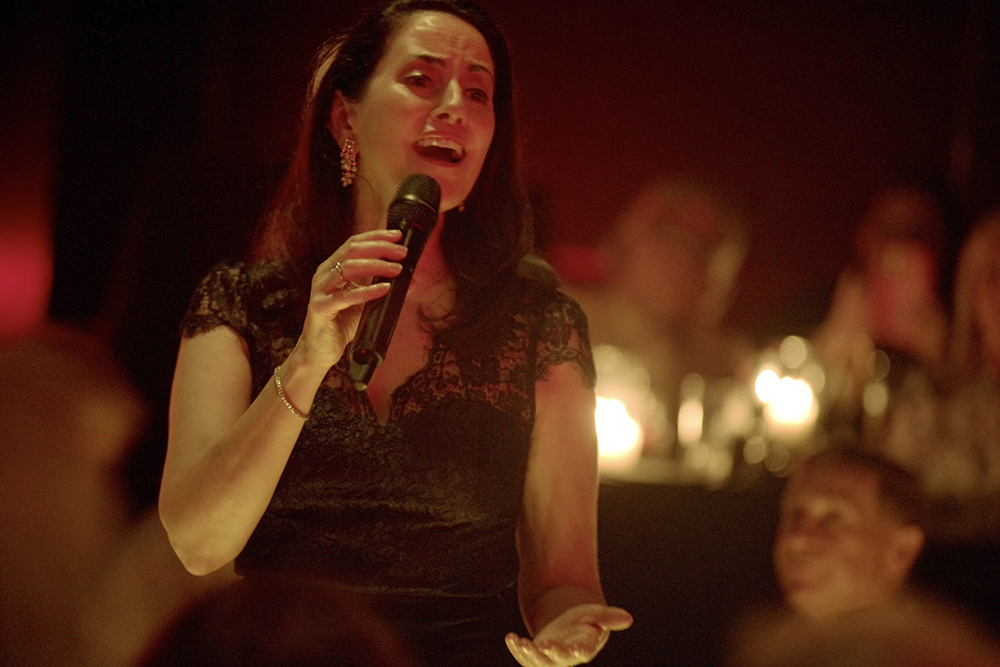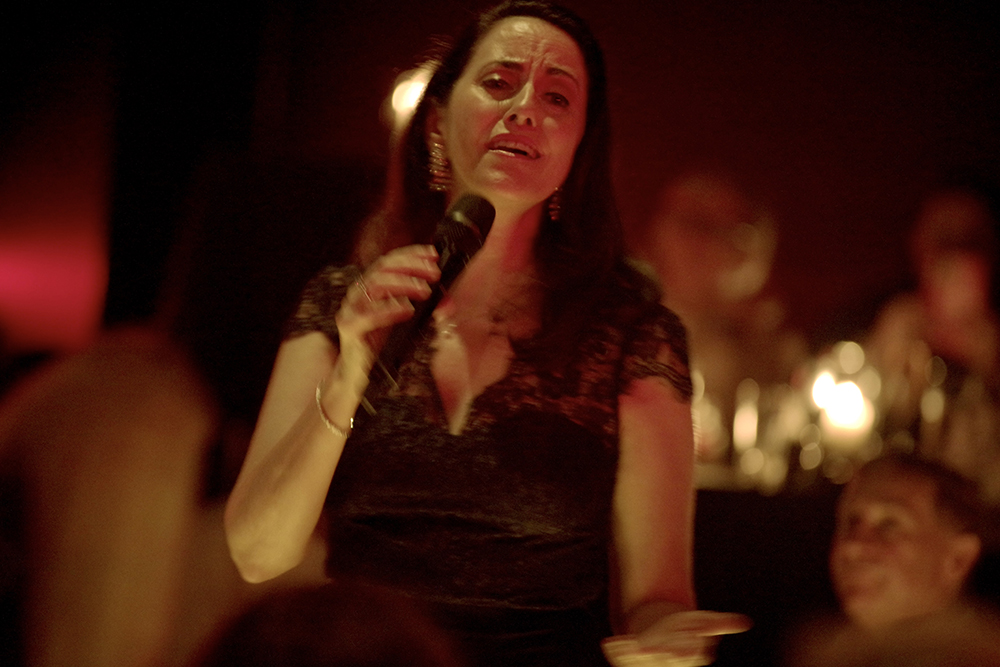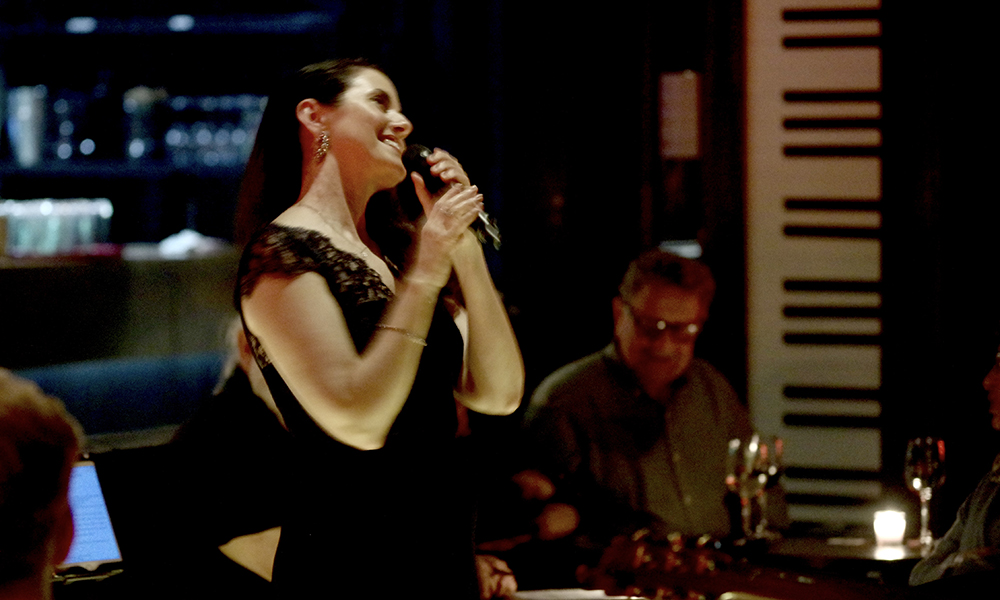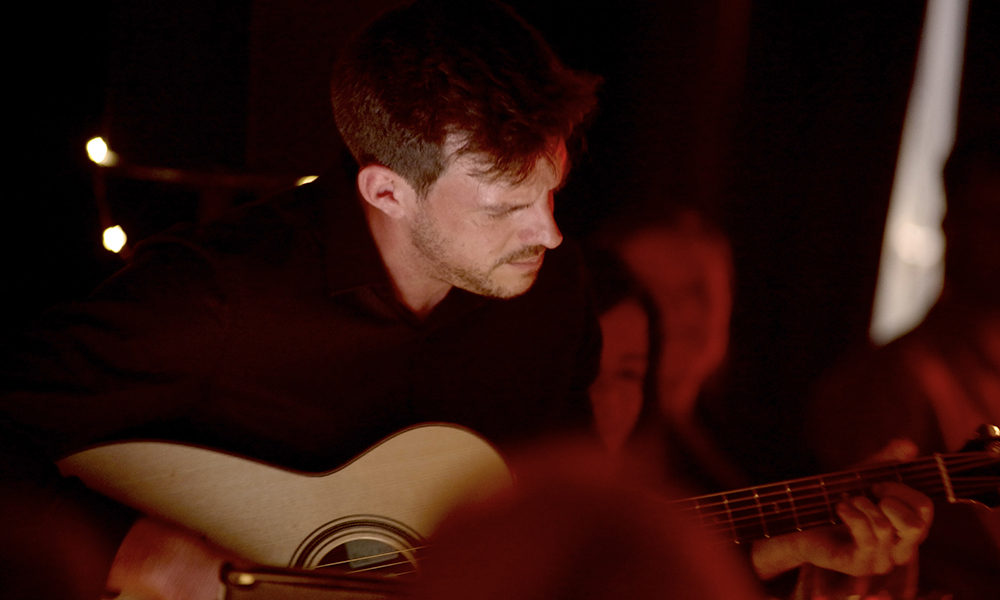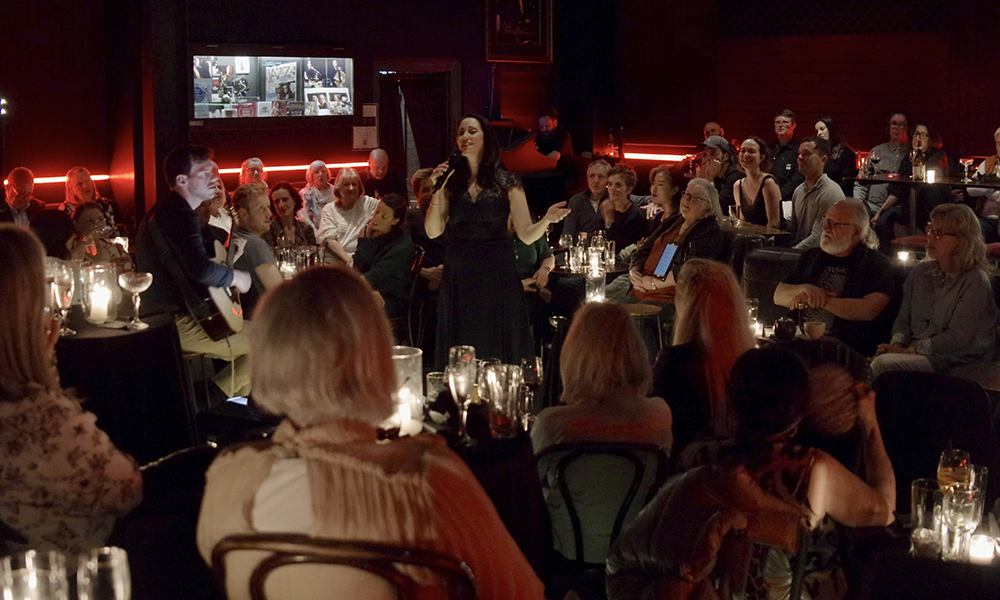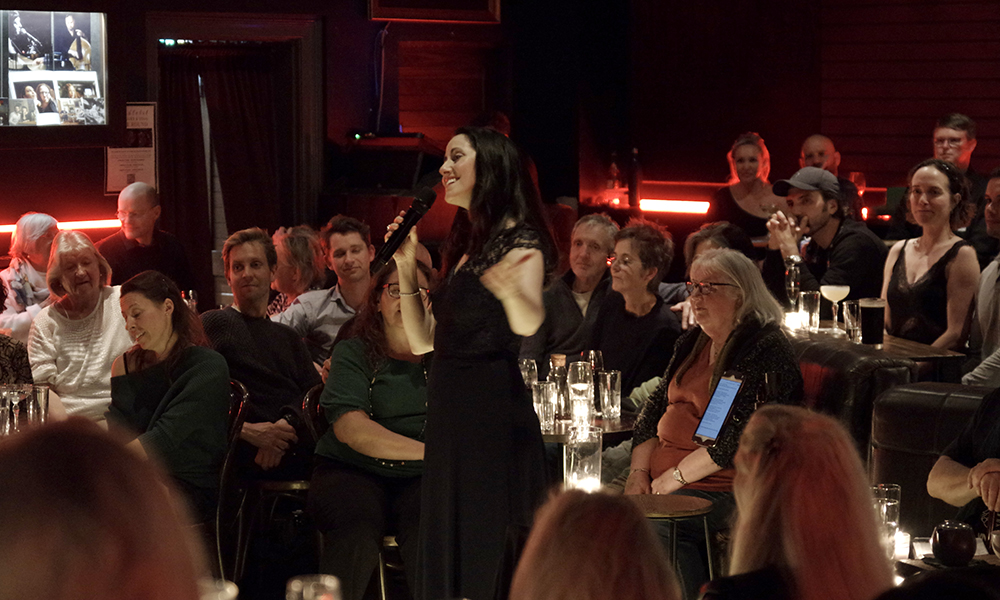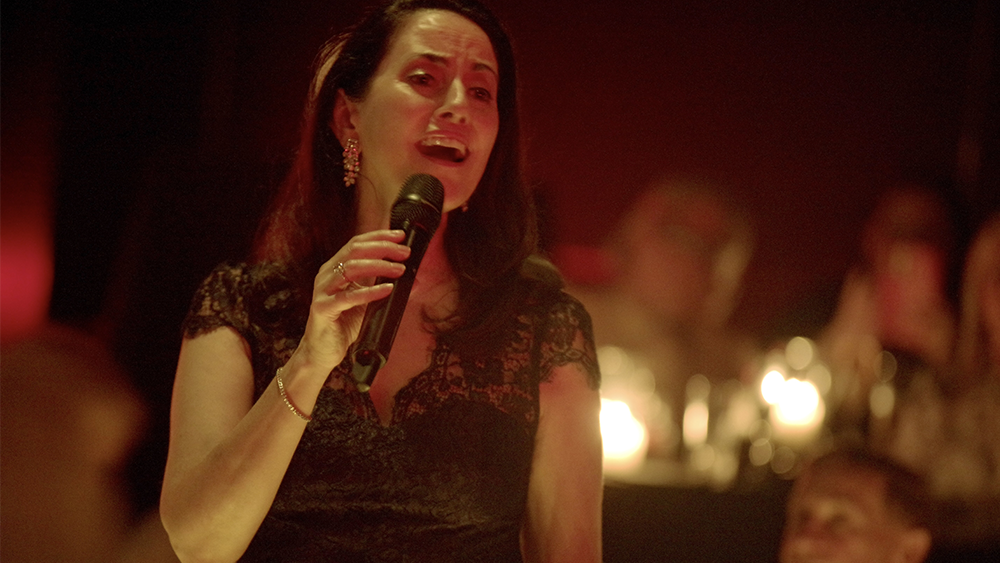
Review: Candlelit Jazz at Ellington Jazz Club
Candlelit Jazz at Ellington Jazz Club
w/ Simone Craddock, Aaron Deacon
Tuesday, August 13, 2024
Over three nights last week, the Ellington Jazz Club dimmed its lights and turned its tables on the artists for a series of acoustic concerts. Circled by candlelit tables, a pop-up stage in the centre of the room transformed the already intimate venue into a snug theatre-in-the-round.
The first show, Candlelit Jazz, was performed by singer Simone Craddock in duo with guitarist Aaron Deacon. Over two sets, they deftly wove their way through the crème de la crème of the Great American Songbook: Cole Porter, Rogers, Hart and Hammerstein, Johnny Mercer, the Gershwins and many, many more.
The selection was fantastic. There were numbers so achingly familiar you no longer know where you know them from, and others that have slipped through the cracks to become classics. In this, the show was a revelation—you heard something different while having your expectations met.
The candlelit, duo format suited this type of music. An intimate airing, the spare arrangements enabled the artists to explore the heart of each song. Weaving melody lines between Craddock’s rich voice and Deacon’s fluid guitar, they showed just why these songs have won a place within the canon.
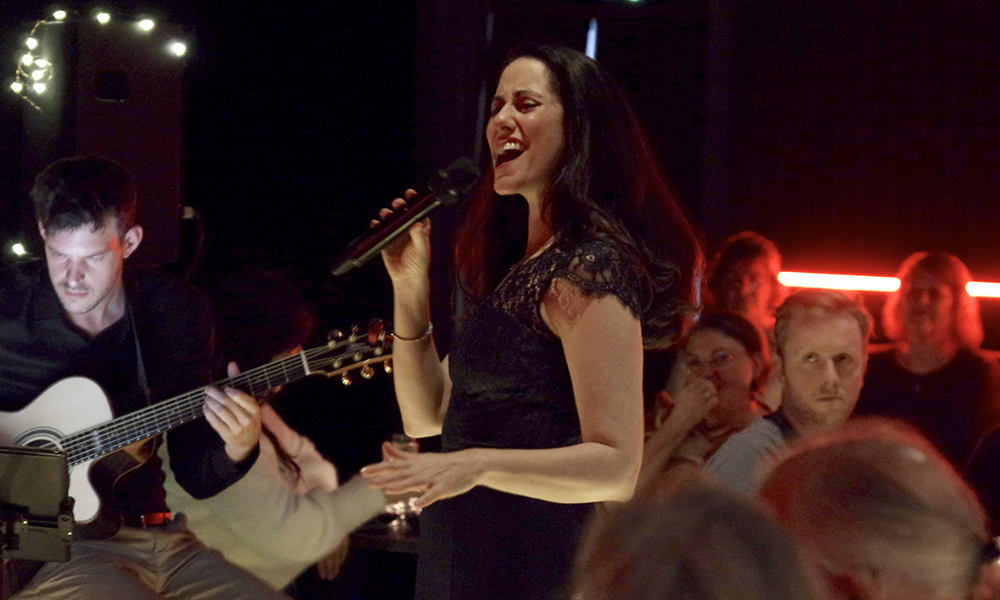
Simone Craddock
Craddock’s natural range is mezzo-soprano—she can hit some very sweet, very high notes. But that is not her only realm. On some tunes, she plumbed the depths, revealing a husky hue in her voice.
The highlight here was Cole Porter’s So In Love, one of the show’s few darker moments. The shift between her high and low registers enabled Craddock to capture both ‘the bitterness of joy and sweetness of despair’ inherent in Porter’s fine lyric.
But Craddock saved her most dramatic moment for the finale, the Gershwins' Love is Here to Stay. In the style of Minnie Riperton, at the climax, she delivered a sensational two-octave leap. From sultry to sweet, it was a stunning moment.
Deacon’s dexterous guitar was the ideal foil for this. Jumping between chords and melody lines, his ease with the instrument came into its own.
After humble beginnings in heavy metal, the jazz course at the WA Academy of Performing Arts saw Deacon broaden his horizons. A fine jazz player and now in-demand teacher, he is one of the two regular guitarists in the highly-regarded gypsy-jazz ensemble Sassafras.
Craddock’s CV stretches back a long way. Her formal training was also at the Academy, where she completed a certificate in Musical Theatre, but her real education came while treading some of the world’s most famous boards.
In the time-worn tradition of Australian singers, no sooner had she graduated than she jumped on a jet for England. It was there that she cut her teeth and mastered her craft.
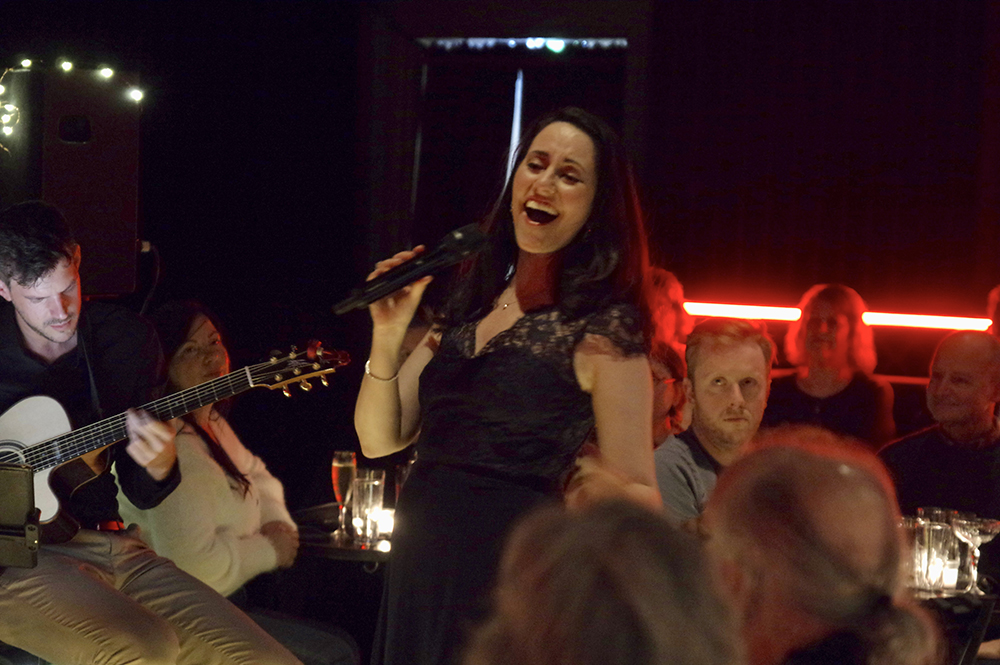
Simone Craddock
The London musical-theatre scene is not easy to crack, but with dogged determination, Craddock managed it. Knocking on all the right doors, she fought her way into the most competitive auditions and won some plum roles. Over twenty years she appeared in a string of West End and touring productions: Annie, Jesus Christ Superstar, Dirty Dancing, Hello Dolly, Once We Lived Here, and the London season of the Broadway show The Last Session. The touring shows saw her on stages throughout the UK, Germany, France, Monaco, Belgium, Hong Kong and Singapore.
Not only did she learn from singing with some of the world’s best singers, but along the way she picked up some masterclasses. One of her most memorable tutors, on first hearing Craddock’s voice, said that she could teach her how to either emulate the classic musical theatre sound or further develop her natural voice. Realising it would be better to be herself and stand out, Craddock opted for the latter. She hasn’t looked back since.
Although best known for her musical theatre, while based in London, Craddock peppered her career with some straight theatre, the odd residency on cruise ships, and, most notably, forays into jazz. She has performed at the legendary Ronnie Scott’s and, memorably, in the Houses of Parliament. Her appearance there in the three-part harmony group, The Girls From Oz, gave the honourable members something to relish.
With such international exposure, it is little wonder that Craddock has a refreshingly ingenuous stage presence, salted by a down-to-earth sense of humour. This was enhanced the other night by her presence on a level with the audience.
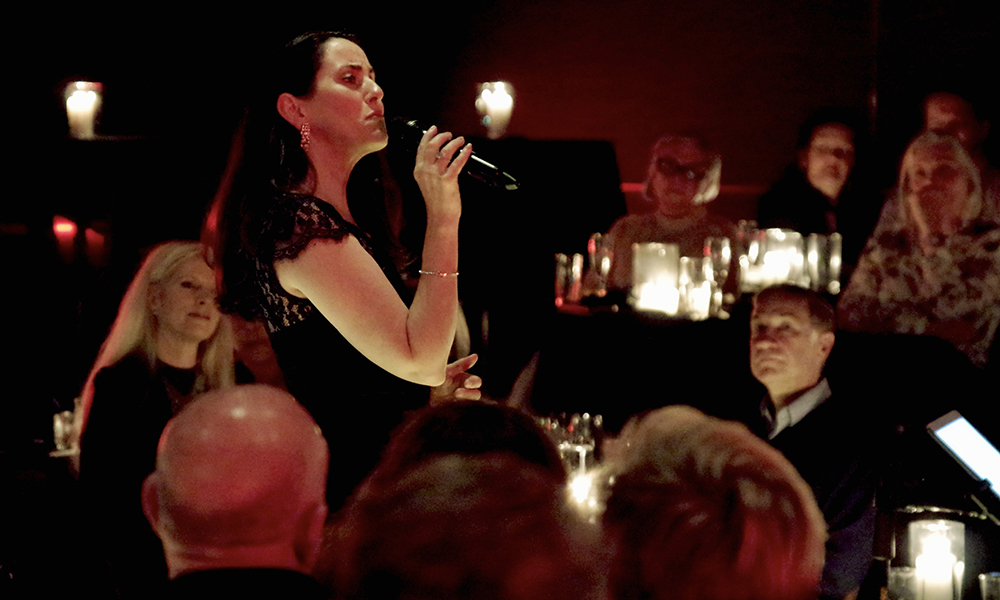
Simone Craddock
Like all good themed shows, she introduced the songs with insights into the genre. Among her many pearls were Cole Porter’s key to songwriting (‘write Jewish songs’) and the classic songbook definition of ‘verse’. This is not, as we may think, the bit between the choruses, but the one-off introductions that set up the story. Built on a different harmonic structure, usually in a slower tempo, these passages are too often dropped from the cover versions. But the true aficionados keep them in.
This led into a husky rendition of Rogers and Hart’s Bewitched, Bothered and Bewildered from the 1940 Broadway show (later movie), Pal Joey.
Building on Craddock’s flair for musical theatre, this was not the only show tune in the set. There were songs from Porter’s Kiss Me Kate (1948), Can Can (1953) and High Society (1956), McHugh and Fields’ Lew Leslie’s International Review (1930), Rogers and Hammerstein’s 1945 movie State Fair, and George and Ira Gershwin’s The Goldwyn Follies (1938)—the last score George Gershwin completed before his tragically early death.
Other numbers in the selection were written for bands alone: Hoagy Carmichael and Johnny Mercer’s Skylark, Louis Jordan’s Let the Good Times Roll (1946), and two South American numbers by Antônio Carlos Jobim Corcovado (Quiet Night, Quiet Stars) and Chega de Saudada (There’ll Be No More Blues).
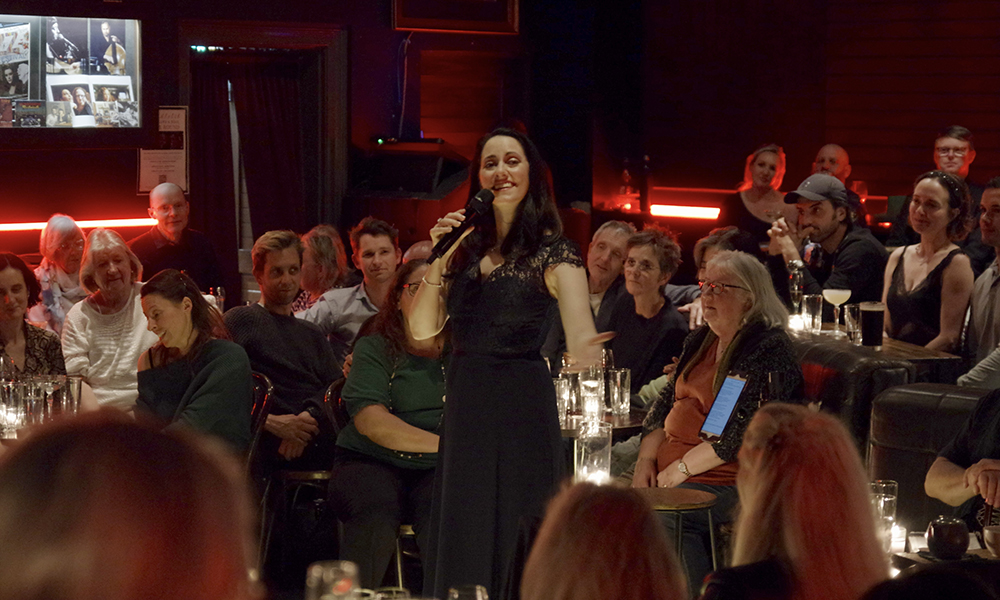
Simone Craddock
Among Craddock’s many highlights were her lush rendition of the Mancini/Mercer masterpiece Moon River (she played Mag Wildwood in the West End production of Holly Golightly, the musical version of Breakfast at Tiffany’s), the tongue-twister lyric of Jobim’s Chega de Saudada, and her syncopated melody on Bye Bye Blackbird.
Of Deacon’s many complex solos, the standouts were Billie Holiday’s God Bless the Child, which closed the first set, and his ragtime riffs on Shelton Brooks, Darktown Strutters Ball.
This is not the first time Craddock and Deacon have used the in-the-round format at the Ellington. Over a few Fringe World festivals, they presented their award-winning Candlelit Valentine show, an evening of romantic songs. Last week the format again proved effective. Breaking that final separation between the stage and the floor drew the audience deeply into the show. Those lucky enough to sit in the central ring could reach out and touch them—thankfully no-one did! More importantly, it enabled Craddock and Deacon to take them on a gentle waltz down the softer side of the Great American Songbook and to romance the sold-out room with a night of rich and elegant jazz.
IAN LILBURNE
Photos by Alan Holbrook

